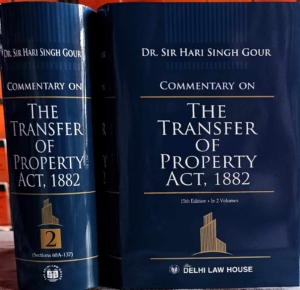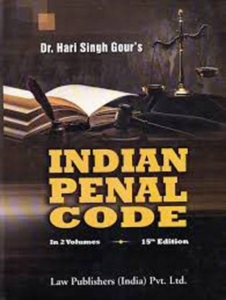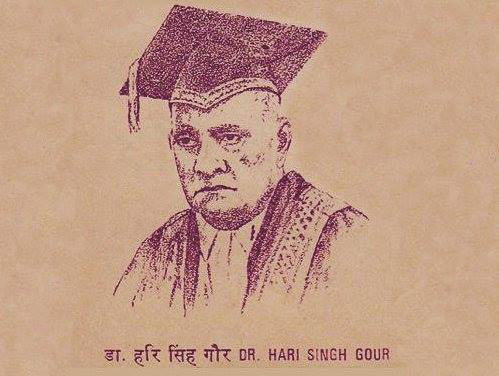Dr. Hari Singh Gour: The forgotten champion of Legal Rights Movement
The Parinirvan Diwas of Baba Saheb Ambedkar is also a fine day to remember his contemporary, 𝗗𝗿. 𝗛𝗮𝗿𝗶 𝗦𝗶𝗻𝗴𝗵 𝗚𝗼𝘂𝗿, an orator, a litterateur, a lawyer, a brilliant conversationalist; an eminent jurist, a patriot or a courageous social reformer. Dr. Gour remains the 𝙛𝙤𝙧𝙜𝙤𝙩𝙩𝙚𝙣 𝙗𝙚𝙖𝙘𝙤𝙣 𝙤𝙛 𝙥𝙧𝙤𝙜𝙧𝙚𝙨𝙨𝙞𝙫𝙚 𝙡𝙚𝙜𝙖𝙡 𝙥𝙧𝙤𝙫𝙞𝙨𝙞𝙤𝙣𝙨 𝙢𝙖𝙙𝙚 𝙛𝙤𝙧 𝙩𝙝𝙚 𝙗𝙚𝙩𝙩𝙚𝙧𝙢𝙚𝙣𝙩 𝙤𝙛 𝙄𝙣𝙙𝙞𝙖𝙣𝙨, 𝙨𝙥𝙚𝙘𝙞𝙖𝙡𝙡𝙮 𝙛𝙤𝙧 𝙬𝙤𝙢𝙚𝙣’𝙨 𝙧𝙞𝙜𝙝𝙩𝙨. Dr. Harisingh Gour was the one to lay the strong legal foundation of a progressive India, on which, subsequently, Baba Sahib Ambedkar paved the path.
path.

Dr. Harisingh Gour wrote ‘𝗦𝗽𝗶𝗿𝗶𝘁 𝗼𝗳 𝗕𝘂𝗱𝗱𝗵𝗶𝘀𝗺'(𝟭𝟵𝟮𝟵), a serious elemental study of Buddhist philosophy, which had a great impact on several buddhist countries such as Japan and Sri Lanka. Dr. Gour was even honoured as Dharm Guru in Japan. It is also been talked that Dr. Ambedkar also got inspired by this book.

Dr. Gour wrote two monumental works which got acclaimed as two great 𝗰𝗹𝗮𝘀𝘀𝗶𝗰𝘀 𝗶𝗻 𝘁𝗵𝗲 𝗹𝗲𝗴𝗮𝗹 𝗹𝗶𝘁𝗲𝗿𝗮𝘁𝘂𝗿𝗲 of the country. The first one, i.e. 𝗟𝗮𝘄 𝗼𝗳 𝗧𝗿𝗮𝗻𝘀𝗳𝗲𝗿 𝗶𝗻 𝗕𝗿𝗶𝘁𝗶𝘀𝗵 𝗜𝗻𝗱𝗶𝗮, 𝗽𝘂𝗯𝗹𝗶𝘀𝗵𝗲𝗱 𝗶𝗻 𝗠𝗮𝗿𝗰𝗵 𝟭𝟵𝟬𝟮, was instantly acclaimed as a work of unparalleled eminence. It has assisted the decisions of the High Courts in many complicated cases.

n 1910, he published his other great work—𝗧𝗵𝗲 𝗣𝗲𝗻𝗮𝗹 𝗟𝗮𝘄 𝗼𝗳 𝗕𝗿𝗶𝘁𝗶𝘀𝗵 𝗜𝗻𝗱𝗶𝗮— one of the most prominent works in the field. Even in Europe and America where the Penal Law was not in force, it received the appreciation of eminent jurists like Sir Frederick Pellock.
His publication of the ‘𝗛𝗶𝗻𝗱𝘂 𝗖𝗼𝗱𝗲’ added considerably to his reputation as a great author and jurist. This book rendered the otherwise complex Hindu Law intelligible to all, a service invaluable in itself. The work ran into two editions and is a correct and 𝘂𝗻𝗿𝗶𝘃𝗮𝗹𝗹𝗲𝗱 𝘀𝘆𝗻𝘁𝗵𝗲𝘀𝗶𝘀 𝗼𝗳 𝘁𝗵𝗲 𝗛𝗶𝗻𝗱𝘂 𝗟𝗮𝘄. It influenced the national Legislature, to undertake the codification of some of its provisions.
His 𝗖𝗶𝘃𝗶𝗹 𝗠𝗮𝗿𝗿𝗶𝗮𝗴𝗲 𝗕𝗶𝗹𝗹 (𝗻𝗼𝘄 𝗔𝗰𝘁 𝗼𝗳 𝗫𝗫𝗫 𝟭𝟵𝟮𝟯) 𝗴𝗶𝘃𝗲𝘀 𝗹𝗲𝗴𝗮𝗹 𝗿𝗲𝗰𝗼𝗴𝗻𝗶𝘁𝗶𝗼𝗻 𝘁𝗼 𝗶𝗻𝘁𝗲𝗿-𝗰𝗮𝘀𝘁𝗲 𝗺𝗮𝗿𝗿𝗶𝗮𝗴𝗲𝘀 𝗮𝗻𝗱 𝘁𝗵𝗲 𝗰𝗵𝗶𝗹𝗱𝗿𝗲𝗻 𝗯𝗼𝗿𝗻 𝗼𝗳 𝘀𝘂𝗰𝗵 𝘄𝗲𝗱𝗹𝗼𝗰𝗸 is a striking example. It shows him at once as a great social reformer thinking ahead of the times.
The first bill for the abolition of untouchability was introduced in 1921 by Hari Singh Gour.

Most notably, 𝘁𝗵𝗲 𝗥𝗲𝗰𝗶𝗽𝗿𝗼𝗰𝗶𝘁𝘆 𝗔𝗰𝘁, 𝘁𝗵𝗲 𝗮𝗰𝘁𝘀 𝘁𝗼 𝗿𝗲𝗽𝗲𝗮𝗹, 𝘁𝗵𝗲 𝗖𝗿𝗶𝗺𝗶𝗻𝗮𝗹 𝗟𝗮𝘄 𝗔𝗺𝗲𝗻𝗱𝗺𝗲𝗻𝘁, 𝘁𝗼 𝗿𝗲𝗺𝗼𝘃𝗲 𝘁𝗵𝗲 𝗦𝗲𝘅 𝗱𝗶𝘀𝗾𝘂𝗮𝗹𝗶𝗳𝗶𝗰𝗮𝘁𝗶𝗼𝗻 𝗮𝗻𝗱 𝗲𝗻𝗮𝗯𝗹𝗲 𝘄𝗼𝗺𝗲𝗻 𝘁𝗼 𝗯𝗲 𝗲𝗻𝗿𝗼𝗹𝗹𝗲𝗱 𝗮𝘀 𝗹𝗮𝘄𝘆𝗲𝗿𝘀, 𝗮𝗻𝗱 𝘁𝗵𝗲 𝗔𝗰𝘁 𝘄𝗵𝗶𝗰𝗵 𝗮𝗯𝗼𝗹𝗶𝘀𝗵𝗲𝗱 𝘁𝗵𝗲 𝗶𝗺𝗽𝗿𝗶𝘀𝗼𝗻𝗺𝗲𝗻𝘁 𝗼𝗳 𝘄𝗼𝗺𝗲𝗻 𝗶𝗻 𝘁𝗵𝗲 𝗲𝘅𝗲𝗰𝘂𝘁𝗶𝗼𝗻 𝗼𝗳 𝗮 𝗱𝗲𝗰𝗿𝗲𝗲 𝗳𝗼𝗿 𝗿𝗲𝘀𝘁𝗶𝘁𝘂𝘁𝗶𝗼𝗻 𝗼𝗳 𝘁𝗵𝗲 𝗰𝗼𝗻𝗷𝘂𝗴𝗮𝗹 𝗿𝗶𝗴𝗵𝘁𝘀 𝗲𝘁𝗰. make him an unparalleled champion of women’s rights.
His name will be immortal as the 𝗮𝘂𝘁𝗵𝗼𝗿 𝗼𝗳 𝘁𝗵𝗲 𝗔𝗴𝗲 𝗼𝗳 𝗖𝗼𝗻𝘀𝗲𝗻𝘁 𝗕𝗶𝗹𝗹 𝗼𝗳 𝟭𝟵𝟮𝟵 𝘄𝗵𝗶𝗰𝗵 𝗺𝗮𝗱𝗲 𝘁𝗵𝗲 𝗰𝗼𝗻𝘀𝗲𝗻𝘁 𝗼𝗳 𝘁𝗵𝗲 𝗴𝗶𝗿𝗹 𝗻𝗲𝗰𝗲𝘀𝘀𝗮𝗿𝘆 𝗳𝗼𝗿 𝗺𝗮𝗿𝗿𝗶𝗮𝗴𝗲 𝗮𝗻𝗱 𝗽𝗿𝗲𝘀𝗰𝗿𝗶𝗯𝗲𝗱 𝘁𝗵𝗲 𝗺𝗶𝗻𝗶𝗺𝘂𝗺 𝗮𝗴𝗲 𝗳𝗼𝗿 𝗺𝗮𝗿𝗿𝗶𝗮𝗴𝗲 𝘁𝗼 𝗯𝗲 𝟭𝟰 𝘆𝗲𝗮𝗿𝘀.
𝗘𝗻𝗱 𝗼𝗳 𝗗𝗲𝘃𝗮𝗱𝗮𝘀𝗶 𝘀𝘆𝘀𝘁𝗲𝗺 𝘂𝗻𝗱𝗲𝗿 𝘁𝗵𝗲 𝘀𝗲𝗰𝘁𝗶𝗼𝗻𝘀 𝟯𝟳𝟮 𝗮𝗻𝗱 𝟯𝟳𝟯 𝗼𝗳 𝘁𝗵𝗲 𝗜𝗻𝗱𝗶𝗮𝗻 𝗣𝗲𝗻𝗮𝗹 𝗖𝗼𝗱𝗲 was his another significant contribution.
All these bills together went a long way in creating a 𝗳𝗮𝘃𝗼𝘂𝗿𝗮𝗯𝗹𝗲 𝗽𝘂𝗯𝗹𝗶𝗰 𝗼𝗽𝗶𝗻𝗶𝗼𝗻 𝗳𝗼𝗿 𝘁𝗵𝗲 𝗽𝗿𝗼𝗴𝗿𝗲𝘀𝘀𝗶𝘃𝗲 𝗹𝗮𝘄𝘀.
Hari Singh Gour served as 𝗨𝗻𝗶𝘃𝗲𝗿𝘀𝗶𝘁𝘆 𝗼𝗳 𝗗𝗲𝗹𝗵𝗶’𝘀 𝗳𝗶𝗿𝘀𝘁 𝗩𝗶𝗰𝗲-𝗖𝗵𝗮𝗻𝗰𝗲𝗹𝗹𝗼𝗿 from 1922 to 1926.
Through his generous donation of about a crore of rupees (roughly 800 million of today), he 𝗹𝗮𝗶𝗱 𝘁𝗵𝗲 𝗳𝗼𝘂𝗻𝗱𝗮𝘁𝗶𝗼𝗻 𝗼𝗳 𝘁𝗵𝗲 𝗨𝗻𝗶𝘃𝗲𝗿𝘀𝗶𝘁𝘆 𝗼𝗳 𝗦𝗮𝘂𝗴𝗮𝗿, 𝗻𝗼𝘄 𝗸𝗻𝗼𝘄𝗻 𝗮𝘀 𝗗𝗿 𝗛𝗮𝗿𝗶 𝗦𝗶𝗻𝗴𝗵 𝗚𝗼𝘂𝗿 𝗩𝗶𝘀𝗵𝘄𝗮𝘃𝗶𝗱𝘆𝗮𝗹𝗮𝘆𝗮, 𝗦𝗮𝗴𝗮𝗿.
My heartfelt gratitude to the relentless spirit of our forgotten national hero, Dr. Harisingh Gour!
To Read further, Please Check the Arch-Rebel

